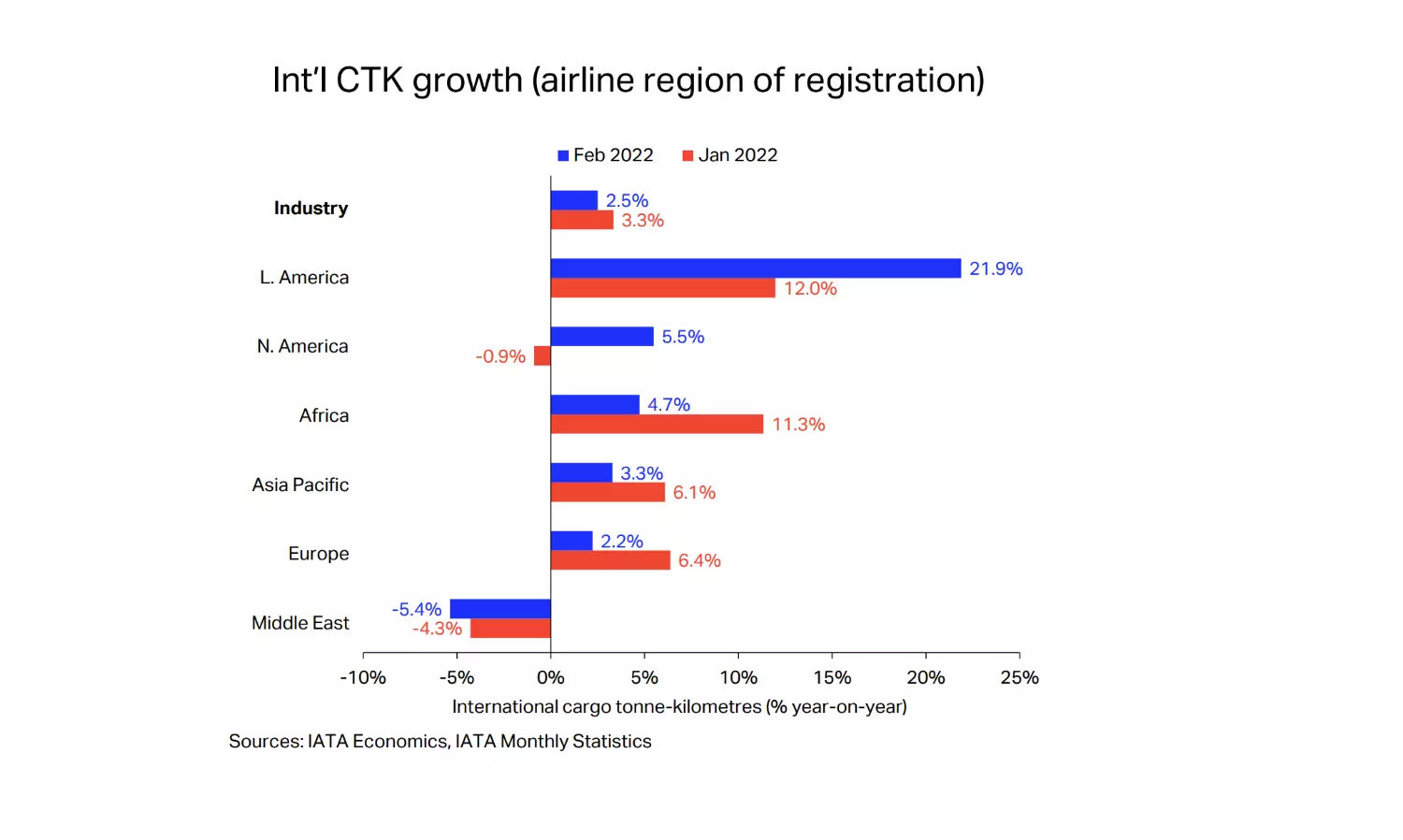African airlines' cargo grew 4.6% YoY in Feb; capacity was 8.2% above
While the global capacity was 12.5 percent above February 2021, it is still 5.6 percent below February 2019 levels.

The International Air Transport Association (IATA) released data for global air cargo markets showing that demand increased in February with African airlines seeing cargo volumes increase by 4.6 percent in February 2022 compared to February 2021 while capacity was 8.2 percent above February 2021 levels.
The IATA report read s, "Several factors benefitted air cargo in February compared to January. On the demand side, manufacturing activity ramped-up quickly after the early February Lunar New Year holiday. Capacity was positively influenced by the general and progressive relaxation of Covid-19 travel restrictions, reduced flight cancellations due to Omicron-related factors (outside of Asia), and fewer winter weather operational disruptions.
Demand & supply
Global demand, measured in cargo tonne-kilometers (CTKs), was up 2.9 percent compared to February 2021 (2.5 percent for international operations). Adjusting the comparison for the impact of the Lunar New Year (which can cause volatility in reporting) by averaging January's and February's performance, demand increased 2.7 percent year-on-year. While cargo volumes continued to rise, the growth rate decelerated from the 8.7 percent year-on-year expansion in December.
Capacity was 12.5 percent above February 2021 (8.9 percent for international operations). While this is in positive territory, compared to pre-COVID-19 levels capacity remains constrained, 5.6 percent below February 2019 levels.
War, Covid-19, inflation, PMI
General consumer price inflation for the G7 countries was at 6.3 percent year-on-year in February 2022, the highest since late 1982. While inflation normally curtails purchasing power this is balanced against higher savings levels coming out of the pandemic.
The Purchasing Managers' Index (PMI) indicator tracking global new export orders fell to 48.2 in March. This was the lowest since July 2020 indicating that a majority of surveyed businesses reported a fall in new export orders.
The zero-Covid-19 policy in mainland China and Hong Kong continues to create supply chain disruptions as a result of flight cancellations due to labor shortages, and because many manufacturers cannot operate normally.
The impact of Russia's invasion of Ukraine had limited effect globally on February's performance as it occurred very near the end of the month. The negative impacts of war and related sanctions (particularly higher energy costs and reduced trade) will become more visible from March.
"Demand for air cargo continued to expand despite growing challenges in the trading environment. That is not likely to be the case in March as the economic consequences of the war in Ukraine take hold. Sanction-related shifts in manufacturing and economic activity, rising oil prices and geopolitical uncertainty will take their toll on air cargo's performance," said Willie Walsh, IATA's director general.


